La vida es corta x eso:
Rompe las reglas
Perdona rapido
Besa despacio
Ama de verdad
Rie sin control
No guardes rencor y sobre todo
nunca olvides SER FELIZ!


Lighthouse of 




La vida es corta x eso:
Rompe las reglas
Perdona rapido
Besa despacio
Ama de verdad
Rie sin control
No guardes rencor y sobre todo
nunca olvides SER FELIZ!
La causa original de toda tensión es el querer llegar a ser. Uno siempre
está intentando ser algo, porque nadie se siente bien consigo mismo tal como
es. El ser no se acepta, se niega, y algo distinto se adopta como un ideal y
se quiere llegar a ser eso. La tensión básica siempre reside entre aquello
que tú eres y aquello que anhelas llegar a ser.
Tú deseas llegar a ser algo. Tensión significa que no estás contento con lo
que eres y que anhelas llegar a ser lo que no eres; entre ambos se crea la
tensión. Aquello que deseas llegar a ser es irrelevante… Si deseas
enriquecerte, ser famoso, ser poderoso, incluso si deseas ser libre, un
liberado, ser divino, inmortal… incluso si anhelas la salvación, moksha,
el nirvana, habrá tensión.
Todo aquello que se desea colmar en el futuro, en contra de ti tal como tú
eres, crea tensión. Cuanto más imposible es el ideal, más tensión habrá. Por
eso la persona materialista generalmente no está tan tensa como la persona
religiosa, porque la persona religiosa está anhelando lo imposible, lo
remoto. La distancia es tan grande que solamente una gran tensión puede
llenar la brecha.
Tensión significa una brecha entre lo que eres y lo que quieres ser. Si la
brecha es grande, la tensión será grande. Si la brecha es pequeña, la
tensión será pequeña. Y si no hay brecha, significa que estás satisfecho con
lo que eres. En otras palabras, no anhelas ser otra cosa que aquello que
eres. Entonces tu mente existe en el momento presente. No hay motivo para
estar tenso; estás relajado contigo mismo. Para mí, cuando no hay una brecha
entre lo que eres y lo que quieres ser, eres religioso.
~ Osho
 Los hábitos son el aceite del el motor de la vida.
Los hábitos son el aceite del el motor de la vida.
¿Hace cuánto tiempo cambiaste el aceite de tu motor?
Se recomienda cambiar el aceite de su auto periódicamente. Mientras cambiemos el aceite con mayor frecuencia, más durará el motor. Si nunca cambiamos el aceite, el motor suele “morir” antes de tiempo por la mugre que obstaculiza su buen funcionamiento.
Podemos relacionar la vida con el motor. Los hábitos y las rutinas son el aceite en nuestro propio motor de la vida. Cuando cambiamos nuestros hábitos y rutinas, extendemos la vida de nuestros motores, produciendo resultados sorprendentes. Mientras que cualquier camino nos lleva por el sendero de la vida, son nuestros hábitos y nuestras rutinas lo que le dan poder al camino.
Al acercarse el fin de año, pensamos en lo que queremos cambiar para el próximo. Genera un periodo de análisis. Reflexionamos sobre lo que fue y lo que puede ser. Algo que todos podemos hacer es darnos cuenta de cuánto tiempo ha pasado desde nuestro último cambio de aceite. “Si seguimos haciendo lo mismo, obtendremos los mismos resultados.” En términos de computación lo llamamos, “Basura dentro, basura fuera.”
Si estamos logrando lo que deseamos, no hay necesidad de grandes cambios. Sin embargo, inclusive cuando vamos bien encaminados, ¡hace falta ver el retrovisor de vez en cuando para asegurar que no encontraremos alguna sorpresa desagradable!
Comenzamos el año con buenas intenciones. Nuestras resoluciones para el próximo año pueden incluir:
Perder peso
Dejar de fumar
Ganar más dinero
Ser más productivo
Realizar más ejercicio
Mejorar nuestra comunicación
Mientras que todos son buenos objetivos, con frecuencia el día a día retoma el control de nuestras vidas después de la euforia de las fiestas y dejamos a un lado nuestras buenas intenciones para atender asuntos más “importantes.”
 Para realizar cambios significativos tenemos que cambiar el aceite y revisar que estemos bien lubricados y así asegurar que nuestro motor de la vida está funcionando como debe ser. Podemos analizar lo que estamos haciendo cada día. Una queja común es, “¡No tengo suficiente tiempo!” Mientras que el tiempo es un recurso limitado para todos, sí tenemos tiempo para realizar las tareas a los que le demos prioridad. Lo que falta no es “el tiempo” sino una falta de enfoque.
Para realizar cambios significativos tenemos que cambiar el aceite y revisar que estemos bien lubricados y así asegurar que nuestro motor de la vida está funcionando como debe ser. Podemos analizar lo que estamos haciendo cada día. Una queja común es, “¡No tengo suficiente tiempo!” Mientras que el tiempo es un recurso limitado para todos, sí tenemos tiempo para realizar las tareas a los que le demos prioridad. Lo que falta no es “el tiempo” sino una falta de enfoque.
También hace falta tener una buena razón por el cual cambiar. La mayoría de nosotros cuidamos mejor nuestros carros que a nosotros mismos. ¿Por qué hacemos esto? La respuesta es muy sencilla, nuestros autos representan una inversión importante y queremos cuidar esa inversión.
¿Cuánto vale nuestro cuerpo?
Independientemente del valor que le demos a nuestro cuerpo, para mantenerlo en óptimas condiciones, tenemos que cambiar nuestro aceite de vez en cuando y darle su merecida importancia. Lamentablemente, lo que suele impulsar estos tipos de cambios son circunstancias de vida que nos obligan a adoptar nuevos hábitos y costumbres. Hábitos pueden darnos poder o nos pueden destruir.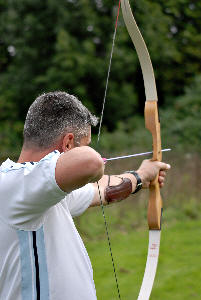
¿Qué tal si de una vez escogemos hábitos poderosos en vez de destructivos?
¿Imagina lo que podemos lograr si nuestras acciones y pensamientos son congruentes con nuestros sueños y deseos?
No hay límites. Los únicos límites son aquellos que ponemos nosotros mismos. Nuestra salud, nuestro ingreso y nuestro bienestar están en nuestras manos.
¿Cómo podemos cambiar nuestros hábitos para dirigir nuestra dirección y determinar nuestro destino?
La vida no es como debería ser; es como es. No existe varita mágica que pueda cambiar los hábitos de toda una vida de un día para otro. Lo que sí podemos hacer es realizar pequeños cambios asegurar que nuestro motor de la vida está funcionando como debe ser.
Podemos preguntarnos lo siguiente:
¿Qué efecto tendrá lo que voy a hacer sobre el “aceite de mi motor”?
¿La comida que comeré permitirá que mi “motor” funcione mejor o peor?
¿Este cigarro que me quiero fumar va a influir positivamente o negativamente en mi “motor”?
¿Qué tal si hago algo más que cumplir solo con los requerimientos mínimos de mi trabajo?
¿Cuál es el uso más valioso que le puedo dar a mi tiempo en este instante?
¿En vez de tomar el ascensor, qué tal si tomo las escaleras esta vez?
¿Qué puedo hacer para escuchar más y hablar menos?
Cambios dramáticos en nuestras vidas no son una fórmula secreta que mágicamente resuelve todos nuestros desafíos. Son las cosas pequeñas hechas constantemente lo que hace la diferencia con el tiempo. No tenemos sobrepeso porque comimos “una” barra de chocolate. No estamos fuera de forma porque tomamos el ascensor “una” vez. Nuestros hábitos y rutinas cotidianas son los que crean nuestras realidades.
Nuestros cuerpos son máquinas bien afinadas que en la mayoría de los casos siguen funcionando a pesar del abuso y la negligencia. Con este año que va cerrando y el que viene que acecha en el horizonte, tenemos el poder para tomar acción hoy, cambiar nuestro aceite y asegurar que nuestro motor de la vida ande suave y sabroso para los días, meses y años que vienen.
∞ Rob McBride ∞
LL II 31
 Habits are the oil in the engine of life.
Habits are the oil in the engine of life.
How long has it been since you have changed the oil in your engine?
Car manufactures recommend people change their oil frequently. The more often we change the oil, the longer the engine will last. If we never change the oil, it is likely the engine will “die a premature death” as it becomes clogged with dirt and debris.
We can relate our lives to the engine. Habits and routines are the oil in our own engine of life. When we change our habits and routines, we extend the life of our own engines by producing new and exciting results. While any path will generally do in the journey of life, it is our habits and routines which empower our path.
As this year comes to a close, we think about what we would like to do differently for the following year. We go through a period of review and reflection. We think about the past year and what we have achieved while planning the coming year to make things better than before.
We can all think about how long it has been since we have changed our habits and routines. “If we keep doing the same thing, we will keep getting the same results.” In computer terms we call it, “Garbage in, garbage out.”
If we are currently getting the results we desire, there is no need for great change in what we are doing. Even if we are going down the right path, it makes sense to look in our rear view mirror every now and again to make sure we don’t get run over.
Most of us begin the year with great intentions. Our New Year’s Resolutions may include:
Losing weight
Stopping smoking
Doing more exercise
Making more money
Being more productive
Improving communications
While these are all worthy ideals, as daily routine sets in after the euphoria of the holidays, often our goals and objectives are set aside as we take care of more “important” things.
 In order to realize any significant change in our lives we need to first “change our oil” and make sure we have the proper lubrication to ensure our engine is running as it should. To do this we can review what we do and how we do it on a daily basis. Many complain, “I just don’t have enough time!” Time is a limited resource. It is not always possible to get everything done though it is possible to do the things we concentrate on. What is missing is not “enough time” rather a lack of focus.
In order to realize any significant change in our lives we need to first “change our oil” and make sure we have the proper lubrication to ensure our engine is running as it should. To do this we can review what we do and how we do it on a daily basis. Many complain, “I just don’t have enough time!” Time is a limited resource. It is not always possible to get everything done though it is possible to do the things we concentrate on. What is missing is not “enough time” rather a lack of focus.
We also need to have a strong reason to change. Many of us take better care of our cars than we do of ourselves. Why would do we do this? The answer is simple, our automobiles represent a significant investment and we want to take care of our investment.
How much is our body worth?
Regardless of the value we place on our own body, in order to keep it in optimum condition, we must “change the oil” from time to time. Unfortunately, the catalyst for many of us to “change our oil” is a life threatening situation where we face dire consequences if we don’t change.
Habits can be empowering or they can be destructive. Starting right now we can choose empowering habits over destructive habits.
Imagine what we can achieve when our thoughts are congruent with our dreams and desires. The sky is the limit. The only limits are self imposed. Our health, our income and our well-being are in our hands.
How then can we change our habits to drive our direction and determine our destiny?
Life is not as it should be; it is as it is. No magic wand can take a lifetime of habits and change them overnight. We can start to “change our oil” more often to guarantee our own engine of life is running as it should.
Here are some questions we can ask ourselves:
“How is what I am about to do going to effect the oil in my engine?”
“Is the food I’m about to eat going to make my engine run better or worse?”
“Is the cigarette I am about to smoke going to make my engine last longer or shorter?”
“Instead of taking the elevator up two or three floors, how about if I take the stairs instead?”
“What if I do more for what I am paid for rather than doing the bare minimum to get by?
“What is the most valuable use of my time in this instant?”
“What can I do to listen more effectively and talk less?”
Dramatic changes in our lives are not the result of some secret formula which will magically solve all of our problems. Instead, it is the small things done on a consistent basis which make a tremendous difference over time. People are not overweight because they ate “one” chocolate bar. People are not out of shape because they took the elevator “one” time. Our habits and routines over a lifetime create our realities.
Our bodies are finely tuned machines which in most cases keep working despite abuse and negligence. As this year comes to an end and a new year lurks on the horizon, we have the power to take action today, change our oil and make sure our own engine of life runs smoothly and soundly into the days, months and years to come.
∞ Rob McBride ∞
LL II 31
* La vida no es justa, pero aún así es buena
* La vida es demasiada corta para perder el tiempo odiando a alguien.
* Tu trabajo no te cuidará cuando estés enfermo. Tus amigos y familia sí. Mantente en contacto.
* No tienes que ganar cada discusión. Debes estar de acuerdo en no estar de acuerdo.
* Llora con alguien. Alivia más que llorar solo.
* Cuando se trata de chocolate, la resistencia es inútil.
* Haz las paces con tu pasado para que no arruine el presente.
* No compares tu vida con la de otros. No tienes ni idea de cómo es su travesía.
* Respira profundamente. Eso calma la mente.
* Elimina todo lo que no sea útil, hermoso o alegre.
* Lo que no te mata, en realidad te hace más fuerte.
* Nunca es demasiado tarde para tener una niñez feliz. Pero la segunda sólo depende de ti.
* Cuando se trata de perseguir aquello que amas en la vida, no aceptes un “no” por respuesta.
* Enciende las velas, utiliza las sábanas bonitas, ponte la lencería cara. No la guardes para una ocasión especial.
* Hoy es especial.
* Sé excéntrico ahora. No esperes a ser viejo para serlo.
* El órgano sexual más importante es el cerebro.
* Nadie es responsable de tu felicidad, sólo tú.
* Enmarca todo supuesto “desastre” con estas palabras: “En cinco años, ¿esto importará?”
* Perdónales todo a todos.
* Lo que las otras personas piensen de ti, no te incumbe.
* El tiempo sana casi todo. Dale tiempo al tiempo.
* Por más buena o mala que sea una situación, algún día cambiará.
* No te tomes tan en serio. Nadie más lo hace.
* No cuestiones la vida. Sólo vívela y aprovéchala al máximo hoy.
* Llegar a viejo es mejor que la alternativa…..morir joven.
* Todo lo que verdaderamente importa al final es que hayas amado.
* Sal todos los días. Los milagros están esperando en todas partes.
* Si juntáramos nuestros problemas y viéramos los montones de los demás, querríamos los nuestros.
* La envidia es una pérdida de tiempo. Tú ya tienes todo lo que necesitas.
* Lo mejor está aún por llegar.
* No importa cómo te sientas… arréglate y preséntate.
* Cede.
* La vida no está envuelta con un lazo pero sigue siendo un regalo.
~ Autor Desconocido
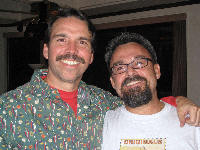 Aunque soy un fiel creyente en vivir en el aquí y el ahora, hay situaciones cuando vale la pena viajar con nuestra mente a otro momento. Nuestra mente es una máquina maravillosa que nos permite volar a otra realidad en un instante. Tenemos una “biblioteca” de recuerdos al que podemos acudir para crear otras emociones cuando sea conveniente.
Aunque soy un fiel creyente en vivir en el aquí y el ahora, hay situaciones cuando vale la pena viajar con nuestra mente a otro momento. Nuestra mente es una máquina maravillosa que nos permite volar a otra realidad en un instante. Tenemos una “biblioteca” de recuerdos al que podemos acudir para crear otras emociones cuando sea conveniente.
En un momento u otro todos tendremos que enfrentar situaciones difíciles y desagradables. Tal vez uno de los acontecimientos más dolorosos de manejar sería la enfermedad terminal de un ser querido.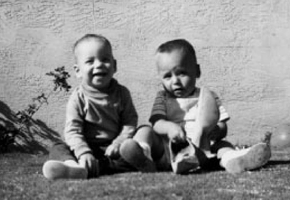
¿Qué decimos?
¿Qué podemos hacer?
En estas circunstancias lo más probable es que ya sepamos el diagnóstico y lo que vendrá después. Lo más natural es preguntar:
¿Cómo comenzó todo esto?
¿Qué sentiste?
¿Qué hiciste?
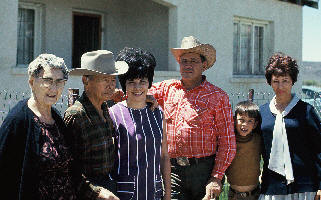 Son preguntas naturales y si bien podrían satisfacer nuestra curiosidad, no es un camino que conlleva a un diálogo positivo, ni retributivo para el paciente.
Son preguntas naturales y si bien podrían satisfacer nuestra curiosidad, no es un camino que conlleva a un diálogo positivo, ni retributivo para el paciente.
¿Qué valor tiene para el paciente reiterar la enfermedad y circunstancias que perjudican su vida?
En la mayoría de los casos, ¡absolutamente nada! Otra manera de manejar la situación es mirar atrás y revivir momentos más agradables y deseables. Por ejemplo, podemos preguntar, “¿Te acuerdas cuando tomamos ese viaje a la playa durante Semana Santa cuando estábamos en la universidad?” Ésta y cualquier otra pregunta que comienza con la frase, “¿Te Acuerdas Cuando…?” nos lleva a otro espacio en el tiempo. Nuestra mente comienza a recordar aquellos instantes bellos cuando compartimos momentos mágicos.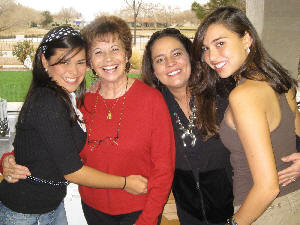
Se puede decir que, “¡Esto es simplemente obviando lo inevitable!” Es cierto. Ir al pasado es una manera de olvidar el presente. Mi respuesta sería, “¿Qué tiene de malo?”
No todo en este mundo es, “bello, bonito y barato.” Hay instantes que son desafiantes y desagradables. Durante estos momentos inevitables de la vida, es mejor volar y viajar a otro momento que nos permita sonreír y recordar lo bello que hemos vivido en vez de martillar lo que vendrá con seguridad.
Cuando tenemos que enfrentar una situación de muerte con un ser querido podemos tomar uno de dos caminos. Uno es entrar en una conversación filosófica de lo que viene y la otra es entrar en un cuadro de recuerdo. Mientras que todo tiene su momento y es necesario enfrentar lo inevitable, en otras circunstancias podemos servir de apoyo y ayuda creando imágenes de lo lindo que ha sido su viaje espectacular que llamamos vida en vez de fomentar la angustia de lo que va a acontecer.
∞ Rob McBride ∞
LL II 30
 While I am a firm believer in living in the “Here and the now” there are situations when it is worthwhile to let our mind travel to other times. Our mind is a marvelous machine which allows us to soar to another space and time in an instant. We have a “library” of memories which can be accessed to create a myriad of emotions when convenient.
While I am a firm believer in living in the “Here and the now” there are situations when it is worthwhile to let our mind travel to other times. Our mind is a marvelous machine which allows us to soar to another space and time in an instant. We have a “library” of memories which can be accessed to create a myriad of emotions when convenient.
At one time or another we will all have to face difficult and unfortunate circumstances. Perhaps one of the most uncomfortable situations is dealing with the terminal illness of a loved one.
What do we say?
How can we help?
In this situation it is likely we already know what is coming and the prognosis. It is natural to ask:
How did all this start?
What did you feel?
What did you do?
 These are common questions and although they may satisfy our curiosity, it isn’t a line of questioning which will necessarily lead to a positive or valuable dialogue for the patient.
These are common questions and although they may satisfy our curiosity, it isn’t a line of questioning which will necessarily lead to a positive or valuable dialogue for the patient.
What value is there in rehashing the sickness and circumstances which they are facing?
In most cases, there is absolutely no value! Another way to manage the situation is to stimulate the mind to soar to more joyous and happy times. For example, we can ask, “Do you remember when we took that trip to the beach during Spring Break when we were in the university?” This and any other question starting with the phrase, “Do you remember when…?” will take us to another space and time. Our mind will begin to remember those times when we shared magical moments.
“This is simply skirting the inevitable!” you may say. I don’t argue with the fact that living in the past is simply a way to forget about the present. My response is, “So what?”
Not everything in life is, “Cheery, jolly and bright.” There are times which are challenging and uncomfortable. During these inevitable moments in life, it is preferable to travel to another time which allows us to smile and remember the beautiful moments we have lived rather than dwelling on the inevitable.
When we have to face the death of a loved one we can take one of two paths. One is to enter into a deep philosophical conversation about what awaits and the other is to paint a picture of what once was. While everything has its moment and there is a time and place to face the inevitable, in other circumstances we can be of support and assistance by creating images of how wonderful their spectacular journey we call life has been instead of feeding the fire of anguish over what is sure to come.
∞ Rob McBride ∞
LL II 30
“It requires some effort to achieve a happy outlook on life, and most people don’t make it.”
—Author and researcher Gregg Easterbrook
Psychologists have recently handed the keys to happiness to the public, but many people cling to gloomy ways out of habit, experts say.
Polls show Americans are no happier today than they were 50 years ago despite significant increases in prosperity, decreases in crime, cleaner air, larger living quarters and a better overall quality of life.
So what gives?
Happiness is 50 percent genetic, says University of Minnesota researcher David Lykken. What you do with the other half of the challenge depends largely on determination, psychologists agree. As Abraham Lincoln once said, “Most people are as happy as they make up their minds to be.”
What works, and what doesn’t
Happiness does not come via prescription drugs, although 10 percent of women 18 and older and 4 percent of men take antidepressants, according to the Department of Health and Human Services. Anti-depressants benefit those with mental illness but are no happiness guarantee, researchers say.
Nor will money or prosperity buy happiness for many of us. Money that lifts people out of poverty increases happiness, but after that, the better paychecks stop paying off sense-of-well-being dividends, research shows.
One route to more happiness is called “flow,” an engrossing state that comes during creative or playful activity, psychologist Mihaly Csikszentmihalyi has found. Athletes, musicians, writers, gamers, and religious adherents know the feeling. It comes less from what you’re doing than from how you do it.
Sonja Lyubomirsky of the University of California at Riverside has discovered that the road toward a more satisfying and meaningful life involves a recipe repeated in schools, churches and synagogues.
· Make lists of things for which you’re grateful in your life
· Practice random acts of kindness
· Forgive your enemies
· Notice life’s small pleasures
· Take care of your health
· Practice positive thinking
· Invest time and energy into friendships and family.
The happiest people have strong friendships, says Ed Diener, a psychologist University of Illinois. Interestingly his research finds that most people are slightly to moderately happy, not unhappy.”